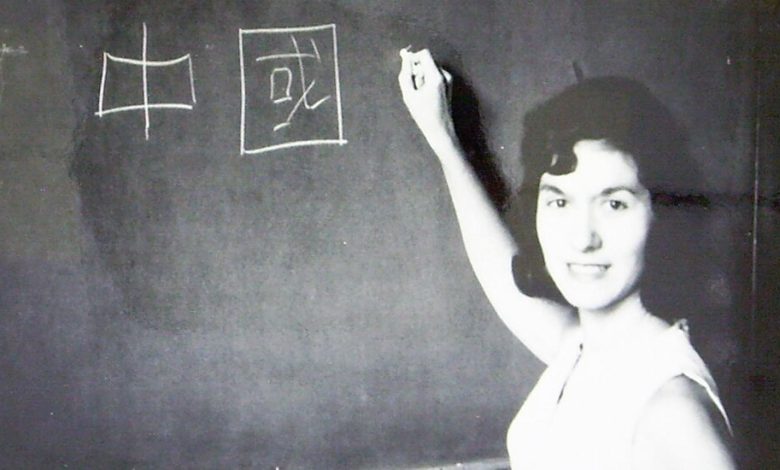Merle Goldman, a Leading Expert on Communist China, Dies at 92

In November 1974, a small group of American college presidents spent three weeks traveling through China, visiting universities, communes, factories and even the office of Vice Premier Deng Xiaoping, who was still four years away from taking over as Communist Party leader.
Though the United States had recently re-established relations with China, it was an insular, even forbidding place, utterly foreign to these Western visitors. Fortunately, the delegation had a famed Sinologist as a guide: Merle Goldman.
A historian at Boston University, Dr. Goldman was still relatively early in her career but was already widely considered one of the world’s leading analysts of Chinese politics. She was far from the only prominent China scholar of her generation, but she stood apart in her ability to communicate her insights to the nonacademic public.
She wrote opinion articles and book reviews for The New York Times, The Boston Globe and The Washington Post, and her reports from her trips to China were required reading for government and business leaders.
Just weeks after returning from that trip to China, she wrote a probing analysis of the country’s defense strategy for The Times.
“Not only does there appear to be a genuine reservoir of good will toward the United States,” she concluded, “but China wants American support in its hostility to the Soviet Union.”
Dr. Goldman died on Nov. 16 at her home in Cambridge, Mass. Her son Seth said the cause was Merkel cell carcinoma, a rare form of skin cancer. She was 92.
Dr. Goldman’s specialty was the politics of dissent in modern China, a topic that gave her a unique perspective on the country’s seismic changes under Communism.
Her first book, “Literary Dissent in Communist China” (1967), which grew out of her dissertation, was hailed as the first, and for a long time the best, study of intellectual life in modern China. The praise it received was repeated for her four subsequent books.
“It was like finding the Rosetta Stone to Chinese politics,” the journalist John Fraser wrote in reviewing her 1981 work, “China’s Intellectuals: Advise and Dissent,” for the Canadian newspaper The Globe and Mail, “and like hundreds of journalists, students and Sinologists, I feel the kind of debt to Goldman one always has for those who offer lucidity and genuine insight in place of chaos and confusion.”
Dr. Goldman, who also held an appointment at the Fairbank Center for Chinese Studies at Harvard, was among the first academics to push back against the largely positive image of China’s Communist government among progressives and other academics in the early 1970s.
She showed that even dissidents who were loyal to the Chinese state, and who sought merely to improve it through criticism, were often the subjects of harsh suppression campaigns. She explained how Mr. Deng, a reformer, cracked down on intellectuals in the 1980s, using them as scapegoats when his efforts to open the Chinese economy led to rapid inflation.
As her career progressed, she became increasingly vocal in her views about political freedom in China, or the lack thereof. She sat on the board of Human Rights Watch and was a member of the U.S. delegation to the United Nations Commission on Human Rights. Chinese scientists, writers and dissidents traveling in the United States would make a point of visiting her office.
Wang Dan, one of the leaders of the Tiananmen Square protests in 1989, came to see her after being released from prison in 1998, having read a smuggled copy of her 1994 book, “Sowing the Seeds of Democracy in China: Political Reform in the Deng Xiaoping Decade.”
Congressional committees frequently called on her to testify on China-related subjects. When President Bill Clinton planned a trip to China in 1998, he turned to Dr. Goldman to help him prepare.
Dr. Goldman was critical of the Chinese state but cautiously optimistic about the country’s potential to open up. Still, she warned in The Times in 1999, “There is no guarantee that China will follow its post-Confucian neighbors on the road to democracy.”
Merle Dorothy Rosenblatt was born on March 12, 1931, in New Haven, Conn. Her parents, Jacques and Rose (Breslau) Rosenblatt, were Jewish immigrants — her father from Romania, her mother from what is now Belarus — who owned a store that sold upholstery fabric.
She studied history at Sarah Lawrence College. While taking summer courses at the University of Wisconsin in 1950, she struck up a conversation with another campus visitor, Marshall Goldman; she was impressed that he was reading Thorsten Veblen’s “The Theory of the Leisure Class.”
They married three years later, soon after she graduated from college. They both went on to doctoral studies, he at Harvard, in economics, and she first at Radcliffe College and then at Harvard. She received her doctorate in history in 1964.
They both secured teaching positions in the Boston area — he at Wellesley College, where he specialized in the Soviet economy, and she at Boston University, where she taught from 1972 to 2001. She worked at Harvard’s Fairbank Center until 2014.
Marshall Goldman died in 2017. Along with their son Seth, Dr. Goldman is survived by another son, Ethan; two daughters, Avra and Karla; 12 grandchildren; and four great-grandchildren. Her brother, Adolph, died in 2017.
The Goldmans established themselves as an academic power couple. They hosted monthly dinners at the Fairbank Center, bringing together experts on the Soviet Union and China from around New England. And their extensive knowledge of their respective subject countries — as well as their ability to trade on each other’s insights — made them frequent advisers to politicians and business leaders.
“We don’t argue about the children,” Dr. Goldman told The Boston Globe in 1988. “We argue about the significance of Confucius.”




